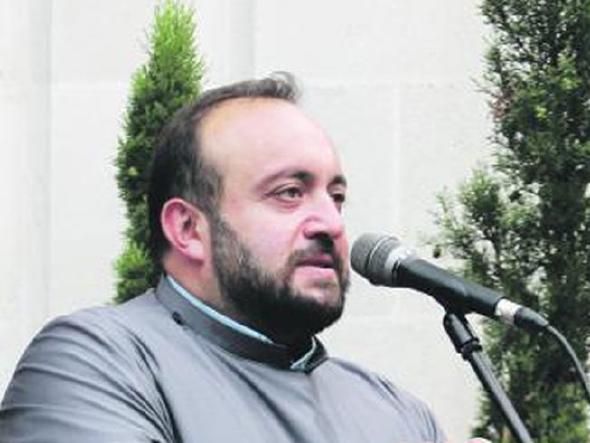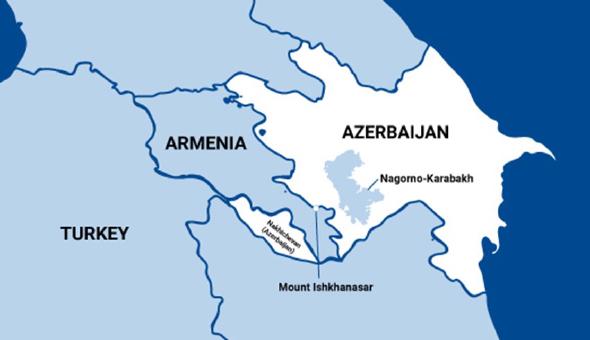The leadership of the Armenian Apostolic Church has raised concerns regarding the recent outbreak of hostilities between Armenian and Azerbaijani forces.
In a statement church leaders said that they were “deeply concerned about the hostilities unleashed by Azerbaijan on the eastern border of the Republic of Armenia, which threatens to escalate into a full-scale war.”
The statement cotninued, “Azerbaijan, ignoring the terms of the 9 November 2020 trilateral statement [the ceasefire agreement brokered by Russia that ended fighting between Azerbaijan and Armenia in Nagorno-Karabakh], claims new ambitions for the sovereign territories of the state of Armenia.”

The church called upon “the international community” and other churches “to raise their voices by all possible means, to stop the next encroachments of the Azerbaijani side for the salvation of human lives, protection of fundamental rights, and prevention of a new tragedy”.
Fighting broke out on the Armenian-Azerbaijan border, near Mount Ishkhanasar, on 16 November 2021, resulting in the death of six Armenian soldiers and the capture of dozens more. Azerbaijan also reported casualties.
The outbreak was ended when both sides agreed to a new ceasefire, negotiated with the support of Russia.
Geolocation of footage taken during the fighting indicates that Azerbaijani forces were encroaching into Armenia. Armenia’s Prime Minister Nikol Pashinyan said that since May 2021 Azerbaijan has appropriated around 41 square kilometres (16 square miles) of Armenian territory.
“The situation is worse than is presented”
Bishop Hovakim Manukyan, Primate of the Diocese of the Armenian Church in the UK and Ireland, said that “the situation is worse than is presented in the media and official channels”, adding that Azerbaijan’s intention is to take control of Armenian territory in order to create a land corridor to the Azerbaijani enclave of Nakhichevan and Turkey.
Benyamin Poghosyan, an Armenian political analyst, also said that Azerbaijan plans to take control of Armenia’s Syunik province – the area between Nakhichevan and mainland Azerbaijan – explaining, “President Aliyev of Azerbaijan has stated many times publicly that Syunik province artificially separates the Turkic world spanning from Istanbul to Kazakhstan.”
Bishop Manukyan continued, “This perilous situation will remain as long as Azerbaijan and especially President Aliyev continue to act with impunity and in disregard of international law and order.
“President Aliyev makes plain that he regards Armenians as less than human, referring to us variously as ‘rats’ and ‘savages’. Armenians fear that he may have genocidal intentions.”

Azerbaijan’s invasion of Nagorno-Karabakh, an ethnic-Armenian enclave within the Muslim-majority Republic of Azerbaijan, began at the end of September 2020, with the political and military support of Turkey. The conflict ended in November 2020 with Azerbaijan having taken significant territories which had formerly belonged to the Armenian community.
Nagorno-Karabakh (mountainous Karabakh) is part of the historic homeland of the Armenian people, who around 301 AD became the first Christian nation, and the region still contains many ancient churches and monasteries. Karabakh was placed within Azerbaijan by the USSR in 1923.
Azerbaijan has been accused of committing war crimes against military and civilian prisoners of war, as well as cultural vandalism, during and after the 2020 conflict.
From Barnabas Fund contacts and other sources
Related Countries
Armenia









